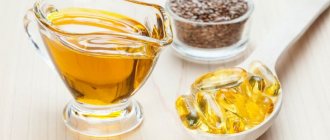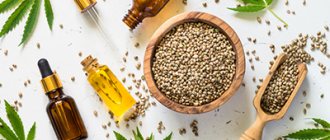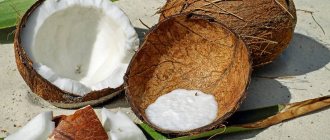Production history
According to history, butter appeared back in 2000 BC, at least this is what ancient records that were found in India testify to. However, the production technology was first developed by the Jews, and mentions of it are even in the Old Testament. In ancient times, the presence of butter in the house indicated that the family lived in abundance, since it was a rather expensive product due to the technology of its production.
According to historians, butter was widely used in Ireland as early as the 5th century, and records from the 8th century indicate that Norwegian sailors took it with them on their voyages. It became widely known in Russia closer to the 9th century, and at about the same time the oil appeared in Italy.
In Russia, a new type of butter began to be produced for the first time - melted butter, which got its name due to the production process. To make it, they took cream, which was previously heated in an oven, then churned, and then thoroughly washed with cold water. Such a pure product was stored for very little time, and to extend its shelf life it was reheated again, and then washed again with cold water and reheated again. Eventually it was divided into two layers, with the top one consisting entirely of natural milk fat, which was cooled until it began to crystallize. The result was ghee, which was supplied to other countries.
In Russia, industrial production of butter began only in the 19th century, when it became available to the majority of the population. It was at that time that there were a large number of factories that were engaged in its production: there were more than a hundred of them. Since that very moment, Russian butter has been used not only by compatriots. It is sent for export, as it is in great demand. In particular, one of the best types is considered Vologda, which has a slight taste of walnuts and is prepared on the basis of milk, which is boiled before use.
Composition and properties
Our ancestors were also firmly convinced that butter was extremely healthy, and they were not mistaken in this. In particular, butter contains a high concentration of vitamin A, which is not found in any type of vegetable oil. Approximately 50 g of oil per day can replenish a third of the required norm in this vitamin, which supports the immune system and improves vision. In addition, butter, due to its fat base, helps to absorb vitamins such as vitamin E, vitamin D and B vitamins, which require natural fats for complete absorption [2]. Oleic acid, which is contained in butter, helps the body in preventing cancer.
In addition to vitamins, it contains more than 150 fatty acids, including 20 essential fatty acids, that is, those that the body cannot produce itself and must receive from the outside.
The oil also contains sodium, zinc, manganese, copper, iron and calcium [3]. Composition of butter (per 100 g) [4][5]
| Calorie content | 660 kcal |
| Squirrels | 0.82 g |
| Fats | From 70 g |
| Carbohydrates | 1.33 g |
| Water | 25.2 g |
| Saturated fatty acids | 47.1 g |
| Unsaturated fatty acids | 2.26 g |
| Cholesterol | 171 mg |
| Mono- and disaccharides | 1.31 g |
| Ash | 0.42 g |
| Vitamins | |
| Vitamin A | 0.41 mg |
| Vitamin PP | 0.1 mg |
| Beta carotene | 0.33 mg |
| Vitamin A (VE) | 449 mcg |
| Vitamin B1 | 0.01 mg |
| Vitamin B2 | 0.124 mg |
| Vitamin B5 | 0.05 mg |
| Vitamin D | 1.31 mcg |
| Vitamin E | 1 mg |
| Macronutrients | |
| Calcium | 23.8 mg |
| Magnesium | 0.41 mg |
| Sodium | 14.7 mg |
| Potassium | 31 mg |
| Phosphorus | 29 mg |
| Microelements | |
| Iron | 0.20 mg |
| Zinc | 0.10 mg |
| Copper | 2.52 mcg |
| Manganese | 0.002 mg |
Natural oil is very high in calories, 100 grams of the product contains from 660 to 730 kilocalories, so it should be consumed in limited quantities by people who are watching their figure. This does not mean that you need to completely exclude it from your diet, but you must take into account its high calorie content.
Harm due to diet
There is no point in saying that butter is healthy on a diet and can be safely included in the diet. Firstly, it is too high in calories, and given that it is added to porridge, sandwiches with cheese/sausage and white bread are made, there is no need to talk about losing weight. Secondly, in large quantities, butter is a “carrier” of cholesterol, which is deposited on the walls of blood vessels and leads to atherosclerosis.
In simple terms, by eating a piece of bread with a thin layer of the product, you can be sure that it will be deposited in an even layer on the hips and waist. Even if someone who is losing weight is actively involved in sports and allows themselves only 1 - 2 pieces, the harm will already be done. The fact is that animal fats are absorbed by the body by 96 - 98%!
How to select and store
Try to avoid buying butter that is wrapped in parchment. The fact is that in this case the oil is exposed to direct sunlight, as a result of which it oxidizes and loses its beneficial properties. It is better to give preference to one that is sold wrapped in foil.
If you bought oil and it turns out that it has been exposed to sunlight for a long time, and the top layer has become yellow and dull, you can simply cut off this layer and throw it away. The rest is quite usable.
Of course, it is best to store butter in the refrigerator, or at least in a place where the temperature does not exceed 12 degrees. Give preference to dark places, because, as already mentioned, sunlight has a detrimental effect on the product.
It is not recommended to use pure glass for storage; it is better to give preference to ceramics or porcelain. The fact is that oil in glass quickly loses its beneficial properties.
To whom is butter harmful?
Everything needs moderation! If you are already overweight, sit in the office all day and eat delicious sandwiches with butter, then don’t ask if butter makes you fat. Definitely yes!
It is worth discarding the product in case of allergies (this can also happen to oil), high cholesterol, as well as skin rashes indicating a violation of fat absorption.
With normal body weight and an active lifestyle, butter must be present in the diet in an amount of at least 30 g per day, and in the cold season the dose can be safely doubled.
Use in cooking
It is recommended to use butter for ready-made products, but it is not recommended to use it for frying. On the other hand, if you fry food on it, it produces much less carcinogens than any vegetable fat. If you need to use butter for frying, use melted butter: this type has a much higher smoke point and is also stored for a long time, up to a year.
You can make ghee yourself: you need to carefully heat the butter, preferably in a water bath, until it becomes liquid.
At this temperature it is necessary to maintain it for about 30 minutes. During this time, excess water will evaporate, and milk proteins will float to the top. These milk proteins must be carefully removed from the surface, and the remaining mixture must be carefully strained - this will be ghee.
Thanks to its neutral and delicate taste, butter has gained popularity, including the use of additives. For example, juices from fruits and berries, cocoa and chocolate were often added to it to obtain a chocolate variety, and even honey.
Not Recommended Products
Which butter is strictly contraindicated on a diet?
❌This butter is not suitable.
❌ Unfortunately, Opolye is also not suitable.
❌ And also butter from “Farm” will only harm your figure.
You can choose any butter you like while on a diet and proper nutrition. Before purchasing, it is important to check the composition of the product so as not to harm yourself. Let your extra pounds fly away forever.
Thanks for your time
The benefits of butter
When consumed in reasonable quantities, butter has a very good effect on the functioning of the gastrointestinal tract and provides it with comprehensive support. On the one hand, the vitamin A it contains helps heal minor wounds, on the other hand, the fat it contains acts as a lubricant for the esophagus, significantly improving its functioning.
Butter is extremely useful for people who live in harsh climates, as it is a source of not only vitamins, but also a large amount of energy, while being a completely natural and easily digestible product.
It is very important to add it to children’s diets, since the fats it contains help cell renewal, including brain cells, which increases the child’s mental activity.
Butter contains a large amount of fat-soluble vitamins, as well as cholesterol, which is vital for our body [6]. In addition, there are a number of other useful properties:
- High calorie content helps saturate the body with energy.
- Promotes the renewal of body cells, including brain neurons.
- Allows you to normalize the production of sex hormones.
- The composition includes vitamin E, which is extremely beneficial for the health of the body, for the beauty of skin, nails and hair. It is especially useful for women.
- The vitamins it contains support normal vision and also stimulate the functioning of the mucous membranes.
- Vitamin A improves the condition of bones and teeth.
All these vitamins are fat-soluble, that is, in order for the body to absorb them, natural fats are needed, which are sufficient in butter [7].
Which one is better to choose?
The body cannot produce many of the substances contained in vegetable oil on its own. However, they are required to support many natural processes. Therefore, you need to receive them along with food daily and in the required amount.
Health shops and store shelves do not limit the choice of healthy oil product. Each of them has its own advantages and characteristics of taste. The only requirement is quality. Healthy oil should not be refined or contain artificial flavorings or other chemical ingredients.
Olive
Experts recommend using this type of oil more often than others when losing weight. In addition to the components traditional for vegetable fats, it has the ability to saturate faster and better than other “brothers”.
Olive oil helps control appetite and improve the production of the happiness hormone. Once in the intestines, it triggers a process that results in the release of a special substance that signals saturation. That is, when flavoring dishes with this oil, you will be able to eat a smaller portion.
To lose weight, you can drink it in the morning on an empty stomach, taking a dessert spoon half an hour before breakfast. If well tolerated - with ten drops of fresh lemon juice. You can simply add oil to prepared dishes. In terms of its taste, “liquid gold” goes best with vegetables, white fish and chicken.
Corn
This type of vegetable oil is not as popular as olive oil, but no less useful. In addition to vitamins, it contains sufficient amounts of folic acid, so it is suitable for nutrition of women who plan to become mothers. And also for girls who have an irregular menstrual cycle (due to high sports loads or a strict diet).
Corn oil is recommended for carbohydrate metabolism disorders and diabetes mellitus. Therefore, during weight loss, such a product will also have a positive effect. It has a beneficial effect on the functioning of the digestive and genitourinary systems, and also improves blood clotting and strengthens the immune system.
As a source of vegetable fat, corn oil can be added to any dish. It has a neutral taste, so it will be almost invisible against the background of other components. It can also be used at the “cooking” stage. This oil is not afraid of heat and will retain all its values even if it is poured into boiling soup.
Sunflower
This familiar product is a source of essential omega-3 and omega-6. These substances are involved in metabolism, so they should be included in the diet of any person who cares about their health.
Unfortunately, most often this is the type of vegetable oil that is excluded during the diet. However, “persecution” is not at all associated with the absence of valuable substances in its composition. Due to its properties, this product is able to withstand very high temperatures without becoming a carcinogen.
Therefore, it is used in cooking mainly for frying. This use has left a kind of “stigma” on sunflower oil, since in order to get rid of extra pounds, this method of processing products is best avoided.
So it turns out that it is very possible to eat this type of vegetable fat during a diet.
Only with the caveat that you will have to use only an uncooked and unrefined product that has a specific smell.
The intense aroma is “not for everyone” and limits the list of dishes in which it is appropriate to add sunflower oil. It goes well with tomatoes and other fresh vegetables, as well as aromatic herbs and garlic.
To find out which oil is healthier - sunflower or olive, watch this video:
Castor
Most often, this type of oil is used externally. Castor oil improves hair condition and helps eyelashes “survive” the harmful effects of mascara. But excellent results in losing weight can be achieved if you use this product internally.
The main value of castor oil during a diet is its laxative effect. Racinoleic acid contained in the product helps enhance the natural peristalsis of the large intestine, as it irritates the receptors on its walls.
In addition, the “natural need” occurs more easily due to the fact that other fatty acids in the oil soften the processed products, preventing them from accumulating and sticking to the walls of the excretory organ.
In addition, natural cleansing helps to get rid of excess fluid. Therefore, castor oil can be used as a decongestant without affecting kidney function.
You can take castor oil for weight loss in a similar way to olive oil. However, for culinary combinations, it is better to choose the option with low-fat kefir or natural yogurt, as well as juices without adding salt, sugar or other spices.
We recommend reading about olive oil for weight loss. You will learn about the benefits of olive oil, choosing a product, rules of use, recipes, massage, and effectiveness for weight loss. And here is more information about lard for weight loss.
Any type of good quality vegetable oil will be a useful component of a healthy weight loss diet. Contrary to stereotypes, you should not use it to enhance the effect of limiting the menu. Dosed use of the product will ensure the normal functioning of organs and relieve hormonal imbalances, as well as improve the taste of permitted dishes.
Use in folk medicine
In folk medicine, it is recommended to give butter to teething children. To reduce these unpleasant sensations, it is enough to smear the child’s gums so that he does not feel discomfort for some time.
If you suffer from a dry cough or there is blood when coughing up, traditional medicine recommends consuming it with sugar to alleviate the condition. In addition, the combination of butter and sugar acts as a diuretic, allowing you to remove excess fluid from the body and cleanse it.
If you have some kind of rash on your body, for example, with lichen or urticaria, you need to lubricate the skin with butter to relieve the condition.
If you suffer from diarrhea, consume it with wine. Pomegranate juice and a little butter help with dysentery.
Our ancestors used butter as a cosmetic product. If you melt it and apply it to your skin at night, it will become more tender and elastic, and will also be saturated with useful substances.
To prevent colds, use butter with lemon. To do this, you need to take the juice of half a lemon and 150 g of oil, mix, add salt and herbs and consume one teaspoon every day. Garlic oil has the same effect. For it you need to take 150 g of the product and 10 grams of garlic, mix and also use a teaspoon.
Scientists' opinion
Most nutritionists agree that butter is necessary for regular consumption in small quantities, as it contains high-quality animal fats and helps the body better absorb many beneficial elements [8].
However, when it comes to benefits and harms, opinions vary. For example, one famous scientist from the UK actively insists that butter should be completely excluded from the diet. He gives a whole list of harmful properties and claims that about 200 thousand people die every year in the UK just because of its regular use.
It is for this reason that he proposes to completely replace butter with margarine or vegetable analogues, and to permanently exclude natural fat milk from consumption [9].
However, most scientists believe that it is actually very beneficial, at least if consumed in moderation. Moreover, it is even necessary, as it saturates the body with useful substances and helps to absorb many vitamins [10].
Some nutritionists insist on the mandatory use of a small amount of butter every day for an adult, since fatty milk is most often poorly absorbed by the adult body, but butter is very well absorbed [11].
This is especially true for older people who may have some problems digesting dairy products. According to scientists, only 10 grams of butter per day is enough for a healthy adult, but in general, amounts up to 30 grams are considered harmless.
Features of use at different ages
The substances contained in butter help the development of the hormonal system, so it is very important to introduce it into the diet of children and adolescents whose hormonal base is just beginning to develop.
Until about 40 years of age, it must be present in a person’s diet every day, and after 40 years of age, it must be consumed in small and strictly individual doses, depending on your health condition.
It is important to remember that after 40 years the body no longer needs to actively support the hormonal and reproductive systems, and the cholesterol contained in butter can lead to atherosclerosis.
This means that after 40 years you need to reduce your consumption of various animal fats (not only butter, but also other types). However, this is not a reason to abandon it altogether.
Best materials of the month
- Coronaviruses: SARS-CoV-2 (COVID-19)
- Antibiotics for the prevention and treatment of COVID-19: how effective are they?
- The most common "office" diseases
- Does vodka kill coronavirus?
- How to stay alive on our roads?
How many calories does butter have?
Butter is a product of animal origin and belongs to the high-calorie category, digestible by 92%. Depending on the fat content, calorie content varies from 662 kcal to 748 kcal per 100 g. This is quite a lot, especially considering that for the average person who does not engage in heavy physical labor, the daily calorie requirement is 2500-3000.
However, this does not mean that the product should be completely excluded from the diet. First, you need to figure out what benefits the oil brings to the body, and what harm it may cause.
We also had an article “Is sunflower oil healthy”, take a look at it.











